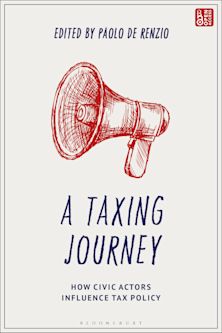The Need for Humility in Policymaking
Lessons from Regulatory Policy
The Need for Humility in Policymaking
Lessons from Regulatory Policy
Description
Regulations impact a wide array of market and social activities that influence our daily lives. Regulations are attempts to correct perceived market failures, caused by information asymmetries, externalities, and principal-agent problems, and to provide public goods, which would otherwise be underprovided. Government actors are responsible for identifying these issues, weighing the costs and benefits of intervention, and designing and implementating regulations to improve society.
Good regulations help mitigate issues in the economy without inciting new problems and without the costs exceeding the benefits of intervention. This requires intensive analysis and an awareness of the complexities of social life. Our society is complex and dynamic where people face knowledge and incentive problems, whether in the market, politics, or civil society. By examining this complex reality, we can better understand why regulations arise and persist and the challenges of reform. We argue that this approach to policymaking and policy analysis requires humility; an acknowledgment of the challenges we face when intervening in our society.
This volume intends to cultivate an appreciation for the complexity of human decision making and the incentives that drive human behavior. By examining specific policy changes, it will delve into the effects of and lessons learned from regulations in financial markets, computer and internet governance, and health care innovation and delivery. This volume will be of interest to students, scholars, and policymakers who seek to understand the complexities of regulation in a dynamic social world.
Table of Contents
Chapter 1: Economic Flaws in Computerized Socialism by Joseph Kane
Chapter 2: Reading Between the Lines: Rulemaking Discretion in the Federal Railroad Administration by Stephen Jones
Chapter 3: Williamsport Revisited: Applying an Austrian Lens to the Lumber and Fracking Booms of Williamsport, Lycoming County, Pennsylvania by Erika Grace Davies
Chapter 4: The Fable of the Packets: A New Institutional/Market Process Approach to Network Neutrality by Nicholas Krosse
Chapter 5: Community Broadband, Community Benefits? An Economic Analysis of Local Government Broadband Initiatives by Brian Diegnan
Chapter 6: Entry Regulation in Hospital Markets: The Impact of Certificate of Need Laws on Hospital Concentration by Ariel Slonim
Chapter 7: Section 1115 Waivers: An Increasing Part of the Medicaid Program by Kelly Ferguson
Chapter 8: Monetary Policy After the Crisis and Alternative Systems for Macroeconomic Stability by Chris Kuiper
Chapter 9: Failed Interventions: The Increasing Ineffectiveness of Monetary and Fiscal Policies in High-Debt Environments by Katelyn Christ
Chapter 10: Risk-Based Capital Regulation and Bank Asset Allocations by Kristine Johnson
Chapter 11: Legal Entity Identifiers as Public Goods and Regulatory Management of Financial Risk by David Rann
Chapter 12: Economic Effects of the “Volcker Rule”: Restrictions on Banking Activity and their Consequences for Economic Stability by Derek Thieme
Product details
| Published | 22 Aug 2019 |
|---|---|
| Format | Ebook (Epub & Mobi) |
| Edition | 1st |
| Extent | 330 |
| ISBN | 9781786611369 |
| Imprint | Rowman & Littlefield |
| Illustrations | 13 b/w illustrations; 20 b/w photos; 24 tables |
| Series | Economy, Polity, and Society |
| Publisher | Bloomsbury Publishing |



































